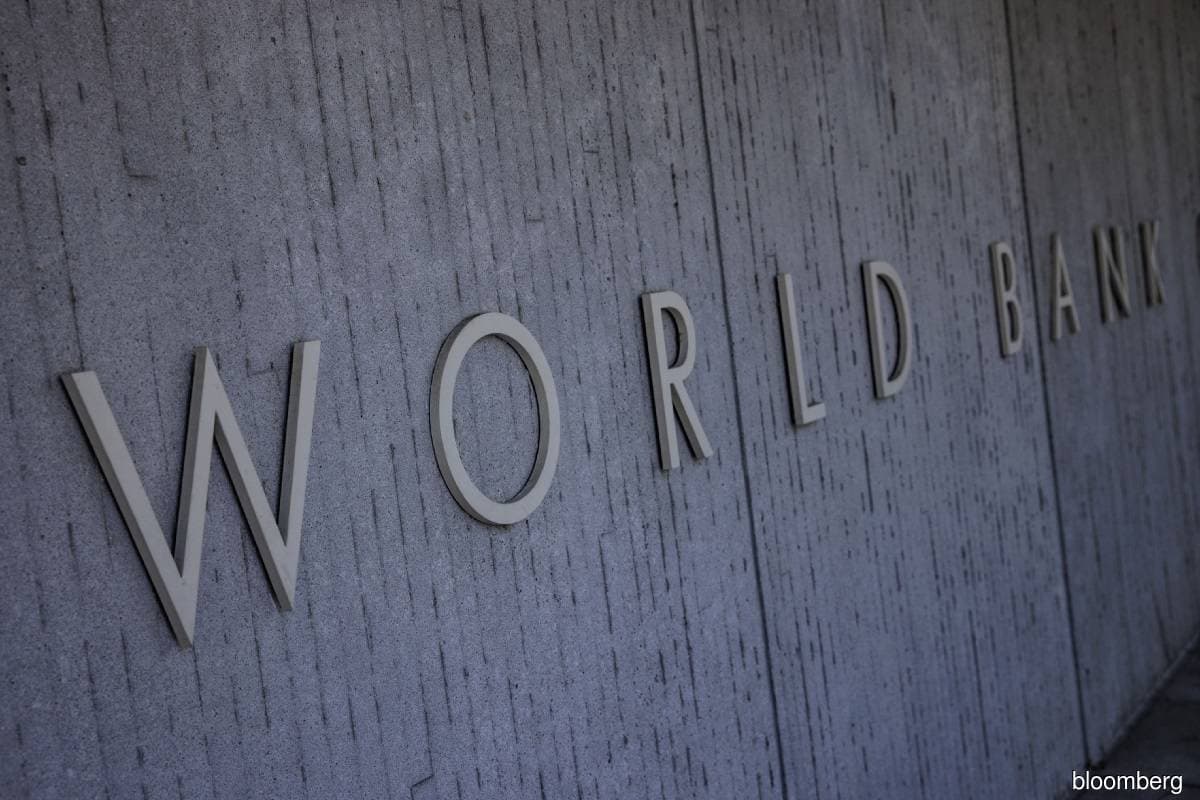
KUALA LUMPUR (Dec 21): The World Bank, in its review of this year, said 2022 has been characterised by uncertainties.
It highlighted that education losses, global inflation, disruptions in supply chains, and other global challenges are reminders of the lingering effects of the Covid-19 pandemic.
The confluence of crises that has defined 2022 continues to hamper global growth, said the bank in its "2022: The Year in Review" report published on its website on Tuesday (Dec 20).
It said the global economy is now in its steepest slowdown following a post-recession recovery since 1970, with global consumer confidence already suffering a much sharper decline than during the run-up to previous global recessions.
The World Bank said the world's three largest economies — the US, China, and the eurozone — have been sharply slowing.
Under the circumstances, even a moderate hit to the global economy over the next year could tip it into recession, it said.
Debt
According to the bank, the debt crises faced by developing countries have intensified over the past year.
It said overall debt levels have increased for developing countries over the past decade, with some 60% of the world's poorest countries either in debt distress or at risk of it.
The World Bank said that over-encumbered with debt, the world's poorest are not able to make critical investments in economic reform, health, climate action, or education — among other key development priorities.
Perhaps more significantly, it said the composition of debt has changed dramatically since 2010, with private creditors playing an increasingly larger role.
By the end of 2021, private creditors held 61% of the public and publicly guaranteed debts of low- and middle-income countries, according to the 2022 International Debt Report.
Meanwhile, non-Paris Club countries (those who are not traditional lenders, like China, India, Saudi Arabia, and the United Arab Emirates) are playing an ever-larger role in the bilateral lending space, as well.
Covid-19
The World Bank said that in response to the ongoing pandemic, countries around the globe are working tirelessly to vaccinate their populations.
The bank is the single largest funder of the global Covid-19 health response, having committed over US$14 billion (RM62.16 billion) in more than 100 countries — including more than 30 countries impacted by fragility, conflict, and violence.
Food inflation
The bank said 2022 has been marked by a drastic rise in food insecurity around the globe.
It said the war in Ukraine, high inflation, supply chain disruptions, and the global economic downturn have all combined to drive large price increases for many agriculture products and inputs, such as fertilisers.
In response to this situation, the World Bank Group has made US$30 billion available to address food insecurity over a period of 15 months.
Energy
Meanwhile, the bank said that the first half of 2022 showcased one of the largest shocks to global energy markets the world has seen in decades — sending energy prices soaring, exacerbating energy shortages and energy security concerns, and further slowing progress toward universal access to affordable, reliable, sustainable, and modern energy by 2030.
It said that globally, 733 million people still have no access to electricity and, at the current rate, 670 million people will remain without electricity in 2030 — 10 million more than projected last year.
In sub-Saharan Africa, recent improvements have been reversed, with the number of people without access to electricity jumping to 568 million in 2020.